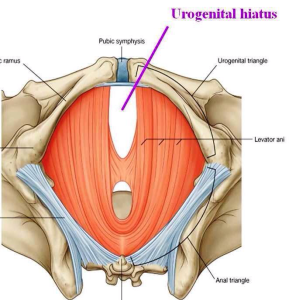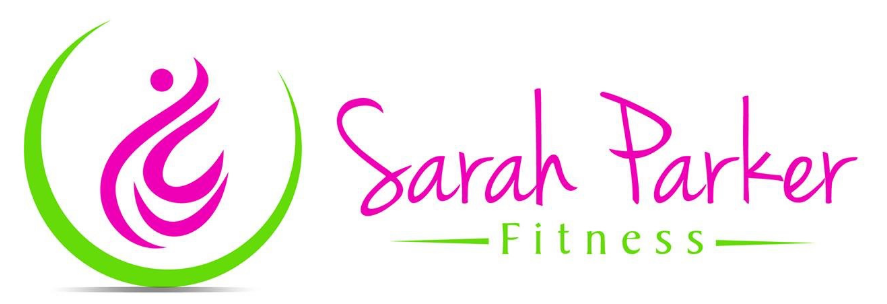Stress Incontinence
So last week a blog was doing the rounds on some of the Facebook pages I follow. It was talking about the incidence of urinary incontinence in exercising women.
There are various types of incontinence. Stress incontinence is the most common (1 in 3 women) and is where you leak urine when exercising but also when laughing or coughing. It's due to the weakened pelvic floor not being able to withstand an increase in intra-abdominal pressure.
What I found particularly interesting in this write-up was the percentage who had a problem in very high impact sports - up to 80% of women. This figure included younger women and also those who hadn't experienced childbirth.
This is the reason why I keep impact out of all my classes. This wasn't always the case - jumping jacks was a favourite of mine in aerobics. But without fail there was always someone who left the studio to use the loo...
So it's advisable if you are experiencing any symptoms that you also avoid high impact exercises. Doesn't necessarily mean you will never be able to do the things you love, it is just a sign to cut back for now.
There are a number of other lifestyle habits you may want to adopt that can help if you are experiencing stress incontinence:
- Drink plenty of water - cutting down may seem like a good idea but actually it will create stronger urine which will irritate the bladder more
- Don't go ' just in case' - this can de- train the bladder. You should be able to last for 3-4 hours between toilet trips. And you shouldn't have to go in the night.
- Strengthen the pelvic floor - My Pilates classes can help with this. I have had marathon runners in my class who used to have to wear pads when racing that are now dry. It may be worth seeing a women's health physiotherapist as well - 50% of women do kegels wrong, bearing down instead of lifting. And some women's pelvic floor will be too tight, in which case kegels is completely the wrong exercise to do!
- Try to pre-brace the pelvic floor before sneezing, coughing etc if at all possible. Weirdly, lifting one leg when you sneeze can also help.
- Practice the Knack!
- Spicy foods - can be irritating to a sensitive bladder
- Cranberry juice - fights off bladder infections but it can also increase the symptoms of an overactive bladder
- Caffeine - it's a diuretic and bladder irritant. Bear in mind that chocolate also contains caffeine
- Carbonated drinks - carbonation can irritate the bladder
- Acidic food - includes fruits (especially citrus fruits), vegetables (tomatoes) and drinks such as juices
- Sugar - real or artificial can worsen symptoms of overactive balladeer for some. Even 'healthy' sugars such as honey can cause problems
- MSG - mono sodium glutamate has been found to be a trigger for some

The gap that you can see is unique to women. It is the urogenital hiatus - a gap in the pelvic floor muscles that allows for childbirth. It is also the reason why women suffer from prolapse more than men. If your pelvic floor is strong, the hiatus stays narrow and this keeps the pelvic organs lifted. If you are experiencing leaks this is a sign that there is a weakness in the pelvic floor. So it's definitely worth being mindful of this gap and not putting undue pressure through your pelvic floor and risking prolapse
Categories
- Parenting (8)
- Pelvic floor (20)
- Pregnancy (7)
- postnatal (24)
- diastasis (4)
- exercise (36)
- postnatal exercise (10)
- caesarean (7)
- healing foods (1)
- nutrition (2)
- Uncategorized (5)
- pregnancy exercise (8)
- prolapse (7)
- Pilates (7)
- kegels (6)
- pelvic organ prolapse (7)
- mothers day (2)
- mothers love (2)
- body shaming (2)
- c-section (3)
- health (36)
- breathing (8)
- core strength (10)
- relaxation (8)
- diastasis recti (3)
- mummy tummy (3)
- fitness (17)
- healthy living (18)
- old age (6)
- prenatal (7)
- back pain (6)
- pelvic girdle pain (1)
- PGP (2)
- pregnancy (3)
- abdominal exercises (5)
- crunches (4)
- c-section recovery (3)
- childbirth (1)
- healing (4)
- six week check (1)
- wound (2)
- anniversary (1)
- exercise classes (11)
- Sarah Parker Fitness (5)
- thanks (1)
- bladder health (2)
- incontinence (6)
- pregnancy pain (2)
- sciatic pain (1)
- breastfeeding (2)
- new mum (3)
- return to exercise (6)
- feet (2)
- gait (2)
- posture (6)
- walking (4)
- baby development (1)
- goals (3)
- New Years resolutions (3)
- healthy eating (1)
- benefits of exercise (8)
- exercise pill (3)
- core exercise (4)
- aching after exercise (1)
- DOMS (1)
- muscles soreness (1)
- healthy choices (12)
- mothering (1)
- fun (4)
- mum guilt (2)
- mum life (2)
- national breastfeeding week (1)
- self-care (15)
- aging well (9)
- workout (8)
- LBT (3)
- cardio (2)
- heart health (6)
- mobility (4)
- stretches (3)
- stress relief (5)
- back care (2)
- walkfit (1)
- beginners (1)

0 comments
Leave a comment